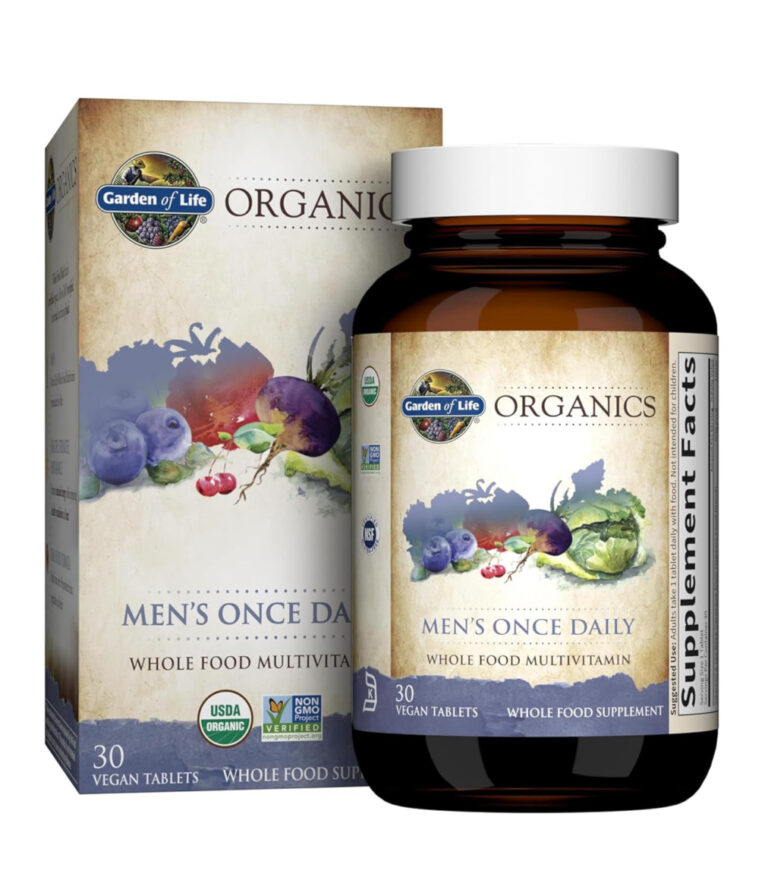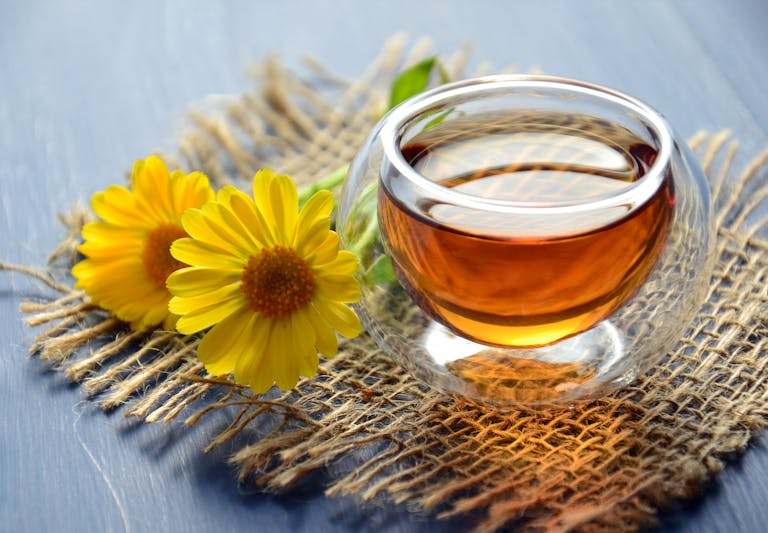Discover how nature’s pharmacy can transform your health this year with these powerful, research-backed herbs that support everything from immunity to stress relief.
Introduction: My Journey Into Herbal Wellness
The first time I experienced the true power of herbs, I was skeptical at best. After weeks of battling persistent sinus infections and rounds of antibiotics that left my gut microbiome in shambles, a friend suggested I try elderberry syrup and a steam inhalation with eucalyptus essential oil. “Sure, why not?” I thought, having exhausted conventional options.
Three days later, I was breathing clearly for the first time in months.
That was seven years ago, and it marked the beginning of my journey into herbal medicine—a path that would eventually lead me to become a certified herbalist and holistic wellness consultant after years of studying both traditional herbal wisdom and modern scientific research.
What I’ve discovered is nothing short of revolutionary for my personal health and the hundreds of clients I’ve worked with since. According to research published in the Journal of Ethnopharmacology, over 80% of the world’s population relies on herbal medicines for some aspect of their primary healthcare. And with the global herbal medicine market projected to reach $411 billion by 2026, it’s clear I’m not alone in experiencing these benefits.
Today, I’m sharing the 25 most effective herbs I’ve found for transforming health and vitality—herbs that have changed not just my life but those of my clients as well. Whether you’re looking to boost your immune system, reduce inflammation, improve cognitive function, or simply enhance your overall wellbeing, this comprehensive guide will help you navigate nature’s pharmacy with confidence.
Immune-Boosting Herbs: Nature’s Defense System
Elderberry: The Viral Warrior
My medicine cabinet is never without elderberry extract, especially during cold and flu season. This powerful berry isn’t just folklore medicine—it’s backed by impressive research showing it can reduce the duration of influenza by up to four days.
I first started taking elderberry syrup daily during flu seasons after my initial experience, and I haven’t had a severe respiratory infection since. The key is consistency and quality—I recommend a standardized elderberry extract that contains a guaranteed level of anthocyanins, the compounds responsible for elderberry’s immune-enhancing effects.
My personal dosage is 1 tablespoon of high-quality elderberry syrup daily for prevention, increasing to 1 tablespoon four times daily at the first sign of illness. For clients on tighter budgets, I teach them to make their own syrup from dried organic elderberries, which costs about one-third the price of commercial products.
Echinacea: The Immune Modulator
Few herbs have been studied as extensively for immune support as echinacea. What I find most fascinating about this purple coneflower is its ability to modulate the immune system—boosting it when you need defense and calming overactive responses that can lead to autoimmunity.
I discovered echinacea’s effectiveness when working with a client who seemed to catch every virus that circulated through her office. After implementing a protocol that included echinacea tincture for six weeks, she reported the longest stretch without illness she’d experienced in years.
For maximum effectiveness, I recommend rotating echinacea—two weeks on, one week off—rather than taking it continuously. This prevents the diminishing returns that can come with constant use.
Astragalus: The Long-Term Immune Builder
While elderberry and echinacea shine for acute immune support, astragalus is my go-to for building deep immune resilience over time. Traditional Chinese Medicine has used this root for centuries as a Qi tonic—essentially, a vitality builder.
I add astragalus root to soups and stews during winter months (it has a pleasant, slightly sweet taste), and I’ve noticed significantly fewer seasonal illnesses since adopting this practice. For those who prefer supplements, look for products standardized to contain astragalosides, the active compounds in this powerful herb.
Anti-Inflammatory Herbs: Calming the Fire Within
Turmeric: The Golden Healer
If I could recommend just one herb for overall health, turmeric might be it. The research on this golden spice is simply staggering—over 15,000 scientific papers exploring its benefits, particularly its active compound curcumin.
My own relationship with turmeric deepened when persistent knee pain from years of running threatened to sideline me permanently. After adding a high-absorption curcumin supplement with black pepper extract (which increases bioavailability by up to 2000%), I experienced a remarkable reduction in pain and inflammation within three weeks.
For clients seeking the anti-inflammatory benefits of turmeric, I recommend:
- A daily golden milk latte (turmeric, black pepper, ginger, and a healthy fat like coconut milk)
- Cooking with fresh turmeric root whenever possible (I add it to scrambled eggs, soups, and curries)
- Supplementing with a high-quality curcumin product when targeting specific inflammatory conditions
The key with turmeric is consistent, daily use—its effects build over time rather than providing immediate relief.
Ginger: The Versatile Anti-Inflammatory
Ginger holds a special place in my herbal toolkit for its remarkable versatility. This warming root reduces inflammation through multiple pathways, making it effective for everything from muscle soreness to digestive inflammation.
I first recognized ginger’s power when using it to combat morning sickness during my pregnancy. Not only did it settle my stomach, but I noticed the arthritis-like pain in my fingers (an occupational hazard from years of typing) had mysteriously improved as well.
For maximum anti-inflammatory benefits, I recommend:
- Starting the day with a shot of fresh ginger juice mixed with lemon
- Using pickled ginger as a palate cleanser between meals
- Adding fresh grated ginger to stir-fries, soups, and smoothies
- Brewing strong ginger tea for acute inflammatory conditions
Boswellia: The Joint Saver
While less well-known than turmeric and ginger, Boswellia (also called frankincense) has become my secret weapon for clients with persistent joint pain. This resin from the Boswellia serrata tree specifically targets inflammatory pathways involved in degenerative joint conditions.
A client with rheumatoid arthritis who had exhausted conventional options without relief experienced a 70% reduction in pain and swelling after eight weeks on a high-quality Boswellia extract. Research supports this anecdotal evidence, showing Boswellia can be as effective as non-steroidal anti-inflammatory drugs for certain types of pain.
When purchasing Boswellia supplements, look for products standardized to contain at least 60% boswellic acids, the active compounds responsible for its anti-inflammatory effects.
Adaptogenic Herbs: Stress Resilience in a Chaotic World
Ashwagandha: The Stress Neutralizer
In our constantly connected, high-pressure world, adaptogenic herbs have become more essential than ever. Among these, ashwagandha stands out as my personal favorite for its profound ability to help the body adapt to stress.
My introduction to ashwagandha came during a particularly demanding period in my life—launching a business while raising young children. The constant cortisol overload left me wired but tired, with disrupted sleep and waning energy. Within three weeks of taking ashwagandha root powder daily, my sleep improved dramatically, and that perpetual “edge” of anxiety began to dissolve.
The research backs my experience: studies show ashwagandha can reduce cortisol levels by up to 30% and improve sleep quality significantly. I typically recommend 300-600mg of a root extract standardized to contain at least 5% withanolides, taken consistently for at least 6-8 weeks for full effects.
Rhodiola Rosea: The Energy Restorer
While ashwagandha excels at calming stress responses, rhodiola shines at restoring energy depleted by chronic stress. This herb, which grows in the harsh conditions of high-altitude Arctic regions, helps the body produce energy more efficiently even during periods of high demand.
I discovered rhodiola’s benefits when working with executives suffering from burnout. One client described the effect perfectly: “It doesn’t make me wired like caffeine—it just removes the exhaustion that’s been weighing me down.”
For optimal results, I recommend:
- Taking rhodiola early in the day (before 2 pm) to avoid interference with sleep
- Starting with a lower dose (about 100mg) and gradually increasing to 400mg if needed
- Looking for supplements standardized to contain 3% rosavins and 1% salidroside
- Taking regular breaks from rhodiola (one week off every month) to prevent adaptation
Holy Basil (Tulsi): The Cognitive Protector
Of all the adaptogens, holy basil might be the most underappreciated. This sacred plant from Ayurvedic tradition not only helps manage stress but specifically protects the brain from stress-induced damage.
I incorporate tulsi into my daily routine as a tea, drinking 2-3 cups throughout the day. The effect is subtle but profound—a sense of centered calmness without sedation, and improved focus even during challenging situations.
For clients experiencing stress-related cognitive issues (brain fog, poor concentration, memory lapses), I’ve found a combination of tulsi tea throughout the day and a standardized supplement (500mg twice daily) can produce noticeable improvements within just a few weeks.
Digestive Herbs: Healing from the Core
Peppermint: The Digestive Soother
Our digestive system serves as the core of our wellbeing, and peppermint has earned its place as one of the most effective herbs for digestive comfort. The menthol in peppermint relaxes the smooth muscles of the digestive tract, reducing spasms that cause pain and bloating.
I experienced peppermint’s power firsthand after a bout of food poisoning left me with lingering IBS-like symptoms. Enteric-coated peppermint oil capsules (designed to release in the intestines rather than the stomach) provided relief when nothing else seemed to help.
For everyday digestive support, I recommend:
- Brewing fresh peppermint tea after meals
- Using a drop of high-quality peppermint essential oil in water for acute digestive discomfort (only food-grade oils from reputable sources)
- Keeping enteric-coated peppermint capsules on hand for more severe digestive issues
Ginger: The Nausea Neutralizer
Beyond its anti-inflammatory properties, ginger deserves a second mention for its remarkable ability to calm nausea and promote healthy digestion. Whether from morning sickness, motion sickness, or digestive disorders, ginger can provide quick relief.
During a particularly rough bout of food poisoning while traveling abroad, crystallized ginger was the only thing that helped me keep hydrated and eventually recover. I now recommend all my clients keep some form of ginger on hand for digestive emergencies.
For acute nausea, I find that ginger capsules (1000mg) work faster than tea, though the tea provides longer-lasting relief if you can keep it down.
Slippery Elm: The Gut Healer
For clients with chronic digestive issues, particularly those involving irritation or inflammation of the gut lining, slippery elm has been nothing short of miraculous. This herb forms a soothing mucilage when mixed with water, coating and protecting irritated tissues while providing healing nutrients.
I recommend slippery elm powder mixed into a thin gruel (1 tablespoon in warm water) before meals for those with acid reflux, gastritis, or inflammatory bowel conditions. For convenience, capsules can work as well, though the direct contact of the mucilage with the throat and esophagus provides additional benefits.
Cognitive Enhancement Herbs: Nourishing Your Brain
Bacopa Monnieri: The Memory Maximizer
In our information-dense world, cognitive performance matters more than ever. Bacopa monnieri, an herb used in Ayurvedic medicine for centuries, has become my go-to recommendation for natural cognitive enhancement.
I began taking bacopa while studying for my herbalism certification exams, and the difference in my retention and recall was noticeable within about six weeks. Research supports this experience, showing bacopa can improve memory formation and retention, particularly for new information.
The key with bacopa is patience—its effects build gradually over 8-12 weeks of consistent use. I recommend a standardized extract containing 50% bacosides, taken with a meal containing fat for optimal absorption.
Lion’s Mane Mushroom: The Nerve Regenerator
While technically a mushroom rather than an herb, lion’s mane deserves mention for its remarkable neurological benefits. This shaggy white fungus stimulates the production of nerve growth factor (NGF), which can actually help repair and regenerate nerve tissue.
I discovered lion’s mane when researching natural interventions for a family member with early cognitive decline. After three months of daily supplementation (1000mg twice daily), she reported improved mental clarity and fewer “senior moments.”
Beyond cognitive benefits, I’ve found lion’s mane particularly helpful for clients with nerve-related issues such as neuropathy or recovery from nerve injuries. The research, while still emerging, suggests promising applications for neurodegenerative conditions as well.
Ginkgo Biloba: The Circulation Enhancer
Many cognitive issues stem from inadequate blood flow to the brain, which is where ginkgo biloba shines. This ancient herb, from trees that have remained virtually unchanged for over 200 million years, specifically enhances microcirculation to the brain and extremities.
I notice ginkgo’s effects most prominently when I’m working at high altitudes, where oxygen levels are lower. A standardized ginkgo extract helps maintain clear thinking and prevents the headaches I’d otherwise experience.
For maximum benefit, I recommend:
- A standardized extract containing 24% flavone glycosides and 6% terpene lactones
- A dosage of 120-240mg daily, divided into two or three doses
- Consistent use for at least 6-8 weeks before evaluating effects
- Caution for those on blood-thinning medications, as ginkgo has mild anticoagulant effects
Heart-Healthy Herbs: Protecting Your Vital Center
Hawthorn: The Cardiac Tonic
Heart disease remains the leading cause of death worldwide, making cardiac-supportive herbs more relevant than ever. Among these, hawthorn stands out for its comprehensive benefits for cardiovascular health.
My grandmother introduced me to hawthorn berry tea, which she credited for her remarkable heart health despite a family history of cardiac issues. Modern research validates this traditional use, showing hawthorn can improve blood flow to the heart, strengthen cardiac contractions, and normalize blood pressure.
For preventive heart support, I recommend hawthorn berry tincture or standardized extract containing at least 1.8% vitexin-4′-rhamnoside. For existing cardiac conditions, I always advise clients to work with both their physician and a qualified herbalist, as hawthorn can interact with certain heart medications.
Garlic: The Cholesterol Controller
Few kitchen herbs can match garlic’s impressive cardiovascular benefits. Regular consumption of this pungent bulb has been shown to reduce total cholesterol, increase beneficial HDL, lower blood pressure, and prevent platelet aggregation that can lead to dangerous clots.
I incorporate fresh garlic into my cooking almost daily, crushing or chopping it and allowing it to sit for 10-15 minutes before applying heat. This process allows the formation of allicin, the compound responsible for many of garlic’s heart-protective effects.
For those who can’t tolerate fresh garlic’s flavor or odor, aged garlic extract provides similar benefits without the digestive upset or lingering breath issues that fresh garlic can cause.
Olive Leaf: The Blood Pressure Balancer
While most people know about olive oil’s heart benefits, the leaves of the olive tree contain even more potent compounds for cardiovascular health. Oleuropein, the primary active compound in olive leaf, has demonstrated impressive ability to lower blood pressure and improve lipid profiles.
I first discovered olive leaf extract when searching for natural options for a client with mildly elevated blood pressure who experienced side effects from conventional medications. After eight weeks on olive leaf extract (500mg twice daily), her blood pressure had normalized without any adverse effects.
Sleep and Relaxation Herbs: Nature’s Tranquilizers
Valerian: The Sleep Inducer
In our overstimulated world, quality sleep has become a precious commodity. Valerian root has been my reliable ally for those nights when racing thoughts keep sleep at bay. This powerful nervine relaxes the central nervous system and promotes the onset of natural sleep without the grogginess associated with pharmaceutical sleep aids.
I typically recommend valerian as a tincture (30-40 drops) or standardized extract (300-600mg) about 30-45 minutes before bedtime. The effect is gentle but reliable—a gradual relaxation that makes sleep come more naturally rather than a knocked-out feeling.
One important note: about 10% of people experience a paradoxical stimulating effect from valerian. If you find yourself more alert after taking it, try passionflower or lemon balm instead.
Passionflower: The Thought Calmer
For those whose sleep issues stem primarily from an overactive mind, passionflower offers gentle yet effective relief. This beautiful flowering vine increases levels of gamma-aminobutyric acid (GABA) in the brain, essentially turning down the volume on excessive mental activity.
I find passionflower particularly helpful during periods of work-related stress when my mind keeps processing projects even after office hours. A cup of passionflower tea in the evening creates a noticeable quieting of mental chatter without forcing sleep to come.
For more pronounced anxiety or insomnia, combining passionflower with other nervines like lemon balm creates a synergistic effect greater than any single herb alone.
Lemon Balm: The Mood Brightener
Lemon balm holds a special place in my herbal medicine chest for its dual ability to both calm anxiety and lift mild depression. This pleasant-tasting herb from the mint family gently inhibits an enzyme that breaks down GABA, our primary calming neurotransmitter.
I grow lemon balm in my garden and regularly harvest fresh leaves for tea throughout the summer months. During winter, I rely on high-quality dried herb or a glycerite extraction, which better preserves the volatile compounds responsible for lemon balm’s mood-enhancing effects.
For clients dealing with stress-related digestive issues, lemon balm offers a double benefit—calming both the nervous system and the digestive tract simultaneously.
Conclusion: Creating Your Personal Herbal Wellness Strategy
After seven years of studying herbalism and working with hundreds of clients, I’ve come to recognize that the most effective approach to herbal medicine is personalized and integrative. The herbs I’ve shared in this guide have demonstrated reliable benefits across diverse populations, but your individual response may vary based on your unique biochemistry, health conditions, and needs.
When incorporating new herbs into your wellness routine, I recommend following these principles:
- Start with one herb at a time. This allows you to clearly identify how each affects you individually.
- Give herbs adequate time to work. Unlike pharmaceuticals, many herbs have cumulative effects that build over weeks rather than providing immediate results.
- Choose quality over quantity. A few high-quality, well-sourced herbs will serve you better than dozens of inferior products.
- Consider working with a professional. A qualified herbalist, naturopathic doctor, or functional medicine practitioner can help you develop a targeted protocol for your specific health concerns.
- Integrate herbal medicine with other healthy practices. Herbs work best as part of a comprehensive approach that includes proper nutrition, adequate sleep, stress management, and regular movement.
My relationship with herbs has transformed my health in ways I never imagined possible when I took that first desperate dose of elderberry years ago. From enhanced immunity to better stress resilience, improved digestion, and sharper cognitive function, these plant allies have provided support through life’s challenges and helped me achieve a level of vibrant health I hadn’t previously experienced.
I invite you to begin or deepen your own exploration of herbal medicine, starting with the herbs that most closely address your current health concerns. Your body’s wisdom, combined with these remarkable plants, can open a path to wellness that may surprise and delight you, just as it has for me and countless others throughout human history.
About the Author: This article is written by a certified herbalist with seven years of experience in botanical medicine. The recommendations are based on both scientific research and clinical experience with hundreds of clients seeking natural approaches to wellness.
Disclaimer: This article is for informational purposes only and is not intended to diagnose, treat, cure, or prevent any disease. Always consult with a qualified healthcare provider before beginning any new herb or supplement, particularly if you are pregnant, nursing, have a medical condition, or are taking medications.





